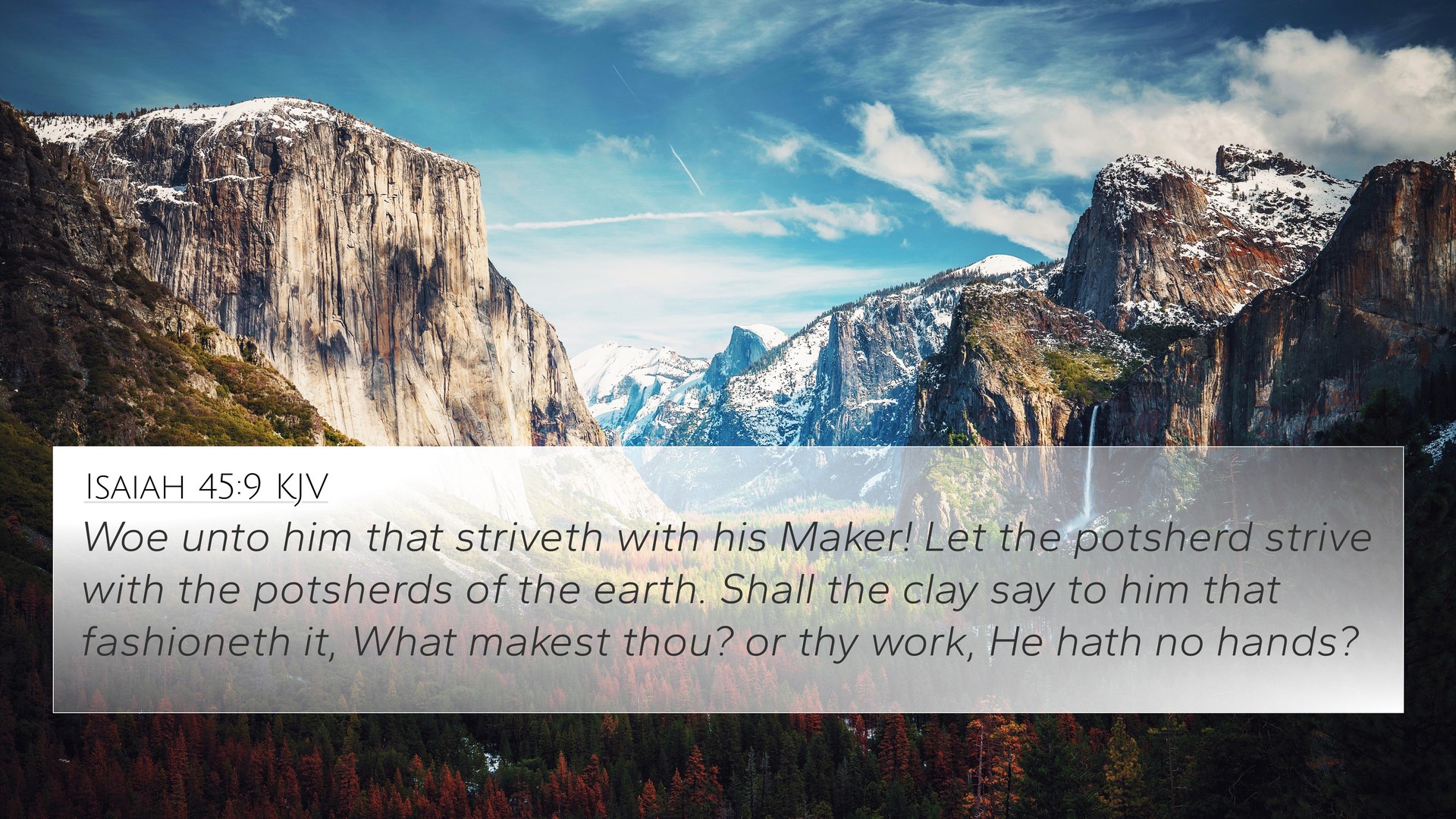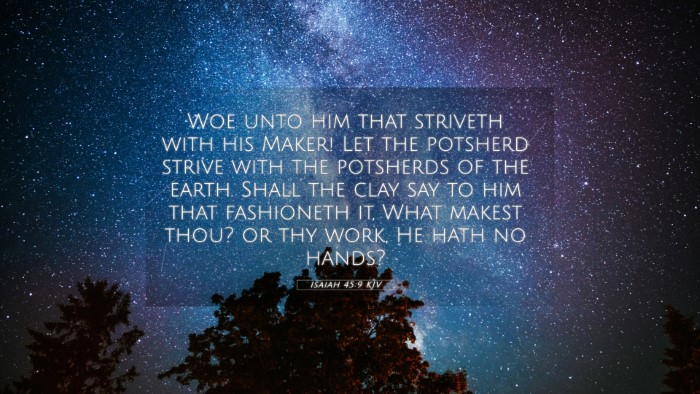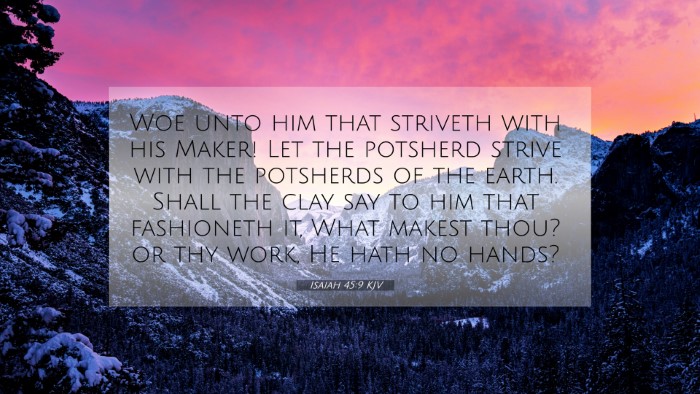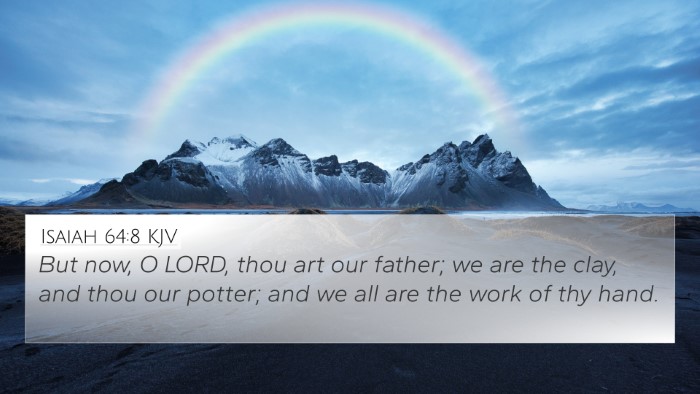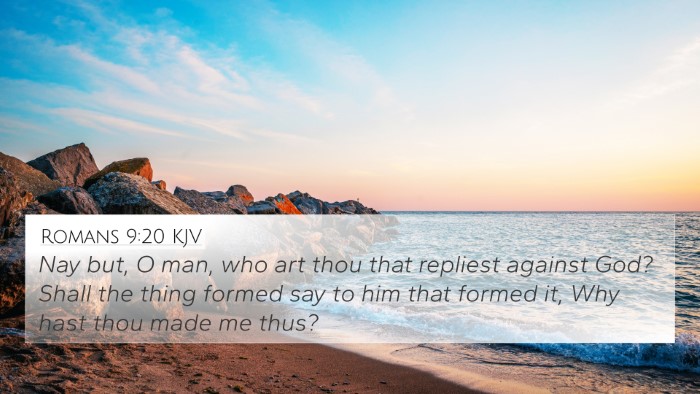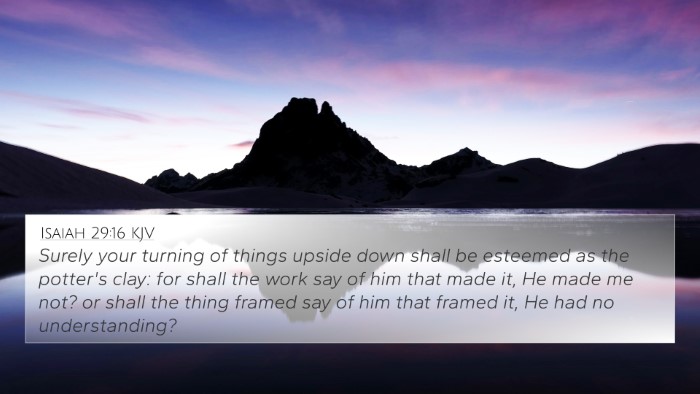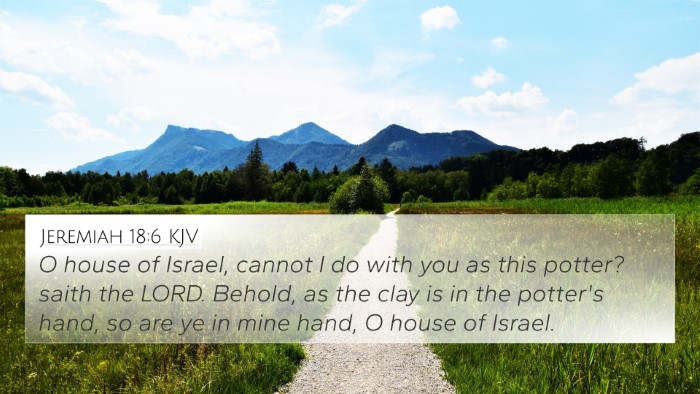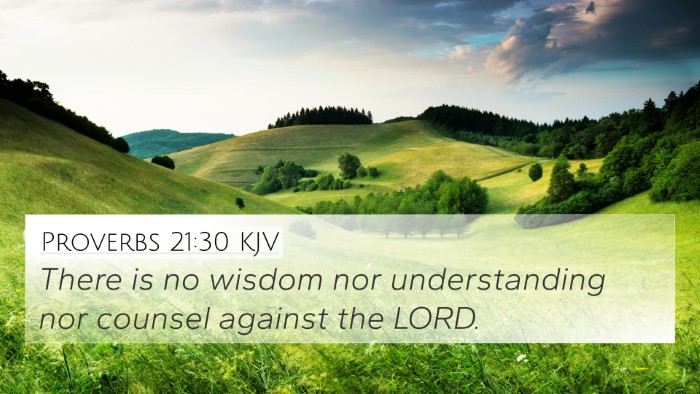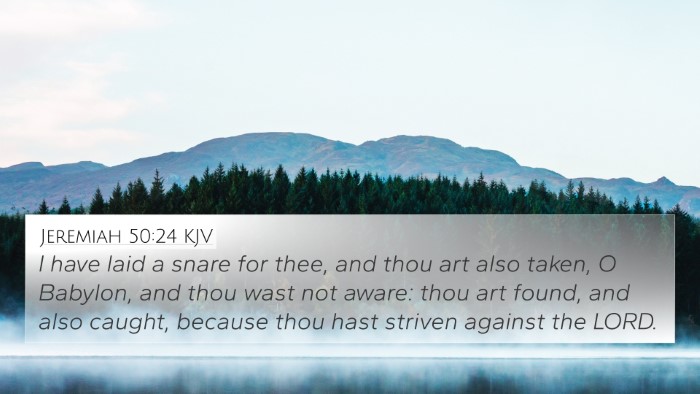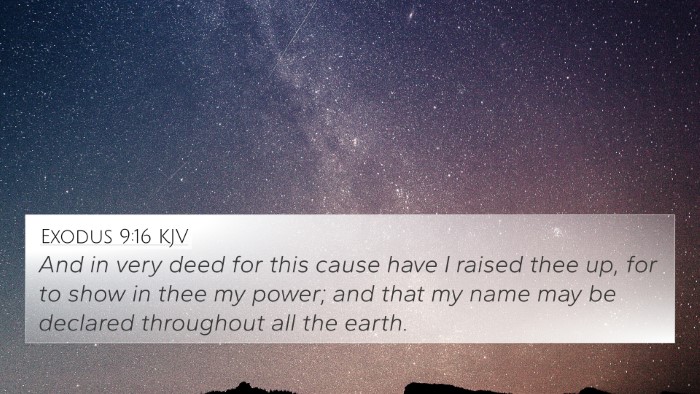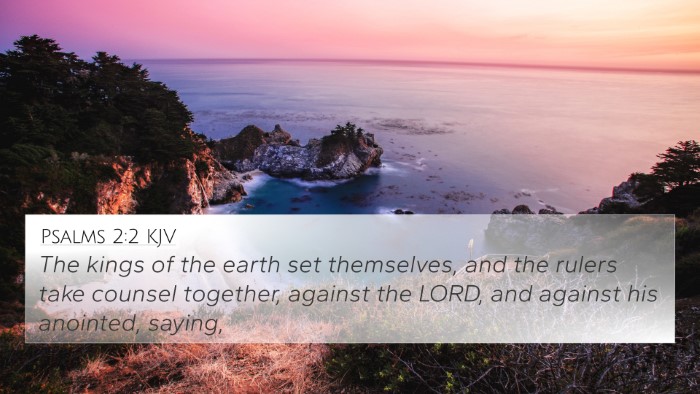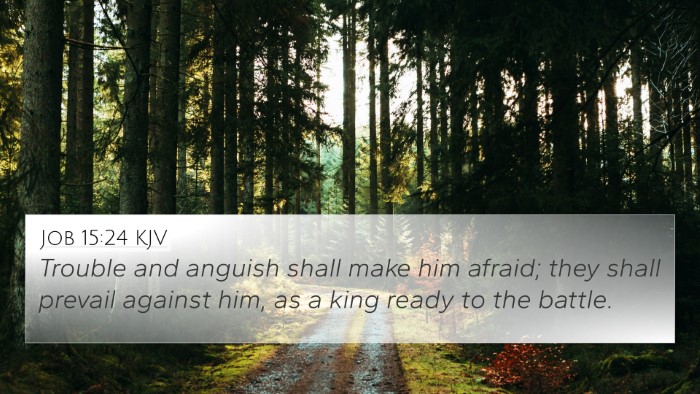Understanding Isaiah 45:9
Verse: "Woe to him who strives with his Maker! Let the pot shears strive with the pot shears of the earth. Shall the clay say to him who forms it, 'What are you making?' Or shall your handiwork say, 'He has no hands'?" (Isaiah 45:9, ESV)
Verse Meaning and Summary
The verse from Isaiah 45:9 serves as a powerful reminder of the relationship between the Creator and His creation. It emphasizes the folly and audacity of questioning God’s purposes or actions. The metaphor of clay and potter serves to illustrate the authority and sovereignty of God over humanity.
Insights from Public Domain Commentaries
- Matthew Henry: Matthew Henry emphasizes the beauty of God's sovereign authority. He explains that just as a potter has full control over his clay, so God has full control over His creation. The verse warns against the arrogance of mankind when they challenge God’s will.
- Albert Barnes: Barnes interprets this verse as a prophetic reminder of God's eternal wisdom and power. He suggests that it highlights human ignorance and the absurdity of demanding explanations from God, whose plans and purposes are beyond human comprehension.
- Adam Clarke: Clarke explores the imagery of the clay and potter, pointing to the significance of creation and the purpose behind it. He suggests that the clay, representing humanity, should not presume to instruct the potter (God) on how to form it, thus underlining divine sovereignty and human submission.
Thematic Connection
This verse engages in a significant thematic dialogue with other scriptural references that share similar messages about God's sovereignty and human humility before Him. Below are related themes and cross references:
Related Bible Cross-References
- Romans 9:20-21: Paul echoes the sentiment of Isaiah 45:9 by questioning how mere humans can challenge God’s will.
- Job 38:2-4: In God's response to Job, He reminds Job of His omnipotence and the limitations of human understanding.
- Isaiah 29:16: This verse reflects on the foolishness of thinking we can outsmart or understand God's ways, illustrating the same theme of recognizing our place as the creation.
- Jeremiah 18:6: This passage also uses the potter and clay metaphor and emphasizes God's authority to shape nations and individuals according to His will.
- Psalms 100:3: This scripture acknowledges God's sovereignty as our Creator, inviting us to come into His presence with gratitude and humility.
- Isaiah 64:8: This verse highlights our status as clay in the hands of our potter, underlining the importance of submission to God’s molding.
- Proverbs 16:9: In this verse, it is made clear that while a man may plan his ways, it is the Lord who directs his steps, reinforcing God's sovereign oversight.
- Philippians 2:10-11: This New Testament passage speaks of the ultimate authority of Christ, reminding humans of their need to humble themselves before Him.
- Isaiah 45:12: This immediately following verse reinforces God’s role as the creator who establishes all things, whom we cannot question.
- 1 Chronicles 29:11: It acknowledges the greatness and sovereignty of God, declaring that everything is from Him and for Him, reflecting the same principle in Isaiah 45:9.
Cross-Referencing and Understanding Scripture
Engaging in comparative Bible verse analysis can deepen the understanding of Isaiah 45:9. By exploring these Bible verses that relate to each other, one can grasp the broader biblical narrative regarding God’s sovereignty and the proper stance of humanity. Tools such as a Bible concordance and cross-reference guides can be very helpful in this study.
When studying the Bible with an aim to find connections between verses, consider cross-referencing Bible study methods, which allow for a more profound exploration of the text. This may include using a cross-reference Bible study guide or engaging in community discussions about how various scriptures inform one another.
Conclusion
Isaiah 45:9 serves as a profound admonition about the nature of human existence in relation to divine authority. Through understanding this verse and its connections to others, believers are encouraged to approach God with reverence, acknowledging His ultimate power and wisdom.
